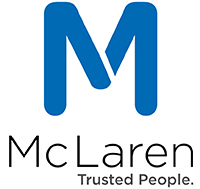One of the best ways to ensure success in life is by being prepared, and this is true too when it comes to finding a new job. Our latest top tips are here to show you all the things you should know before each step of the recruitment process:
What you should know before applying for a new job:
So you’ve been browsing job boards and found something that really interests you? Before you brush up that CV and hit the apply button, there’s a few key things you should know first to ensure you’re applying for the right role:
Contract type – is the role a permanent, fixed term, part time or contract/temp position? Depending on your circumstances, it’s a good idea to find out what type of contract the advertised position is so you can determine whether it’s going to work for you. If you’re unsure how different contract types work, we have a handy breakdown here
Hours – along with the type of contract, it’s really important to understand how many hours the role requires, along with start and finish times, what days of the week are covered and if there’s any flexibility on offer. While many permanent roles tend to be a typical Monday-Friday set-up within core business hours, it always pays to double check.
Location – do your research and figure out exactly where the role is based (if it’s not a remote role of course). That way you can determine whether the commute is feasible. Don’t underestimate the impact a long, difficult, or expensive commute can have on your mental wellbeing and enjoyment of your job!
Salary – don’t be afraid to ask for a salary range on an advertised position if it’s not already stated. While some employers may be truly flexible with salaries, dependent on skills and experience, typically there will be a range they are working with. It’s disappointing to go to all the effort of putting together a really strong application and going through a recruitment process only to find that the salary on offer is not going to work for you, so before you apply, check the salary range to make sure it’s within your expectations.
Recruitment timeframe – check when applications close so that you give yourself enough time to get everything ready. If you know you have things coming up that may make it harder to find time to interview, it may be worth contacting the recruiter or employer to get a feel for timeframes around when they plan to hold interviews and anticipated start dates.
Your availability – the prospect of getting a new job is exciting but if you’re already working or have a planned trip coming up, you need to be clear about your own availability and notice period before putting applications in. While a four week notice period is standard, it pays to check your employment agreement as it may vary!
What you should know before interviewing:
If you’ve been invited for an interview, you’ve made it to the first big milestone of a recruitment process! One of the best things you can do to get ready for an interview is make sure you’re prepared and have all the details confirmed beforehand such as:
Location – will the interview be in-person or held online? If in-person, it’s a good idea to find out the location as soon as possible because it may not necessarily be held in the same place the job is based. Do some planning around how you’ll get there, where you can park if required, and how much time you’ll need so you’re not late. If it’s an online interview, you’ll need to know what platform will be used i.e. Zoom, Microsoft Teams etc. so that you can ensure you have things ready to go on your end to avoid those last-minute panicky downloads or new-account set-ups!
Who you’ll be meeting with – find out who you’ll be meeting with and do a little research to familiarise yourself with their background and experience. Will it just be one person or multiple? Will they be your direct manager, a potential colleague, someone from the HR team or an external recruiter? Asking questions at your interview is important, but if you’re potentially asking the wrong person or framing them in the wrong way that’s not a good look!
Interview style – while many job interviews tend to use competency or behavioral based questions, it’s a good idea to check what interview style you should prepare for just in case!
Then there’s the more informal coffee-style interview that’s more conversational and open-ended instead of running through a list of set questions. This style of interview is much more relaxed and can take place in a public setting like a café, which can throw people off if they’d prepared for a more formal (and discrete) process!
Another interview style you may come across is assessment or case-based interviews where you’re given a practical assignment or provided with hypothetical scenarios and asked questions about how you would approach or handle those circumstances. Whatever the style may be, knowing ahead of time will help you better prepare and feel more at ease on the day!
Time – of course knowing what time your interview starts is pretty essential, but it’s also good to find out how long they expect the interview to take and if there’s anything you need to do when you arrive such as completing forms or going through a sign-in process. That way you can manage your own schedule to allow enough time without feeling rushed.
What you should know before accepting a job offer:
You’re the one! You’ve been given the good news and now it’s time to review the job offer. Make sure you read the employment documents carefully and seek clarification or independent advice if there’s anything you’re unsure of. Before you sign on the dotted line and formally accept a new role, there’re a few important details to check (if you don’t have the information already) to give yourself the best start in a new role:
Salary – of course this is the big one! Hopefully you already had an idea of what salary you’re being offered and there’s no surprises, but when reviewing the employment offer, make sure the salary is clearly spelled out including whether the employer Kiwisaver contribution is included or on-top of the remuneration amount.
Management style and team culture – it’s likely that you’ve already met your potential new manager as well as some of the team through the recruitment process and have started to get a sense of their communication style. But if not, it can be helpful to find out about the team culture, what approach the manager takes and what kind of environment you’ll be working in. Keep in mind that interviews are fairly formal processes by nature and may not be a true reflection of the working environment you’ll be going into. Before you accept a job offer, make sure it’s going to be the right kind of team culture and environment for you!
KPIs and set targets – depending on the type of role, there may be certain expectations or targets built into your employment agreement. Make sure you have a good understanding of what they are and if needed, check with the employer to confirm expectations and how achievable they are, so you’re not being set up for failure before you’ve even begun!
Leave entitlements – have a good read of the employment agreement so that you know what your entitlements will be when it comes to annual and sick leave, as well as when you’ll be able to access them. Some employers require you to be in the role for a set period of time before you can use your annual leave, whereas others will let you use it from day one.
Tools of the trade – getting the right tools to do the job are essential, so it’s good to find out what will be provided and what you may need to source yourself. This can also include things like a vehicle if the role involves regular travel, or a laptop and phone if you’re remotely based or doing hybrid work.
Holiday shut-down periods (if applicable) – depending on the sector and business type, some organisations will have a mandatory shut-down period over the holidays which you may need to use annual leave for. Others may have certain busy times of the year where it’s less practical to grant leave requests. All things to make note of before you sign anything formally!
While you can’t control the outcome, being informed and prepared as you go through a recruitment process is the best way to make sure this new role is going to be a good match for you. If you’re working with a recruitment agency, we’re here to help you navigate all aspects of the application, interview and negotiation cycle, so ask all the questions you need to help you put your best application forward!
Good luck,
Kirsty and Nikki


Leave a Reply